The Black Technology of Fine-Pitch Soldering - The Applications of T7, T8, T9 Ultra-Fine Solder Paste and Epoxy Solder Paste
Abstract
With the continuous chip size reduction and the rapid development of new display technologies such as mini/microLED, the packaging is developing toward miniaturization. The entire packaging industry has more or less encountered problems, and the field of packaging solder has also faced severe challenges in this process. Relying on the unique ultra-fine powder manufacturing technology, Fitech innovatively responds to market challenges with extraordinary T7, T8, T9, and even T10 solder products.
Fitech
Market Challenges
 The first consideration is size reduction
The first consideration is size reduction
Taking the mini/micro LED display as an example, it has to choose T7 solders (2-11um) for the 100um x 200um mini LED chips due to the limitation of the pad size. Similarly, T8 (2-8um) and above solder products must be selected for the 75um x 130um mini LED chips. Otherwise, the minimum amount of solder required for soldering cannot be met, resulting in poor soldering performance such as LED failure and solder joint falling off. (Figures below show the chip/pad size and the amount of solder in a point with different particle sizes).
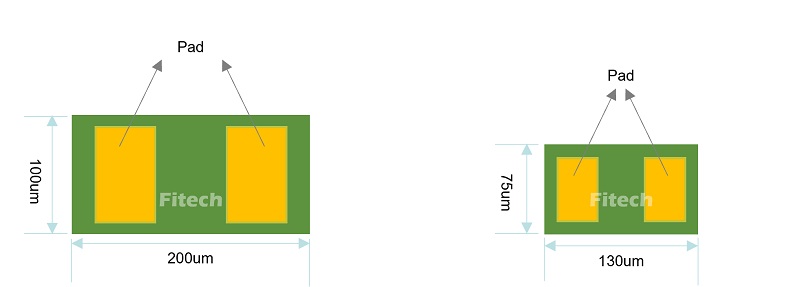

People usually use conductive adhesive film (ACF) to connect a flexible printed circuit board (FPC) between the substrate and the driver IC. Some FPCs at present have reached the line width and line spacing within 20um (as shown in the figure below). The conductive particles of ACF are generally gold-plated organic material balls with a diameter greater than 5um. Since the line spacing is close to 3 times the diameter of the conductive balls (3x5um=15um), reliability problems such as short circuits are prone to occur. As an alternative, if using ultra-fine solder paste, epoxy solder paste, or anisotropic conductive paste for metallurgical connection, it is compulsory to choose T9 (1-5um) or T10 (1-3um) soldering materials.
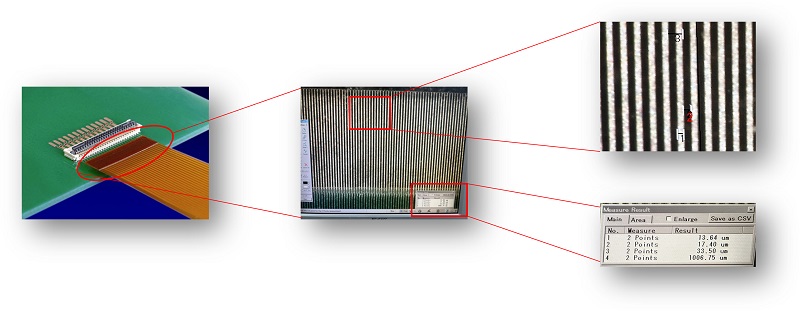
 Another Consideration is yield and reliability
Another Consideration is yield and reliability
Most people believe that mini LED and micro LED require a few million to tens of millions of LED beads. It is essential to ensure high yield and reliability for the connection of the massive number of LED beads. However, many factors affect the yield and reliability. There are some measures to mitigate the negative effects. Firstly, it is necessary to guarantee a narrow alloy particle size distribution. The alloy powder outside the range will lead to poor soldering and short circuit. Secondly, it is important to ensure that the alloy powder is sufficiently dispersed in the solder materials and does not aggregate. The poorly dispersed solder materials will cause short circuits and lead to LED failure. Thirdly, it is necessary to control the oxygen content of the soldering materials. Since the particle size of the solder powder reduces significantly, its surface area dramatically increases. The surface oxygen content and the structural state of the oxide film are difficult to control. High oxygen content or high local oxygen content will reduce soldering reliability. Finally, it is necessary to ensure the performance of the flux, which needs to be active enough to remove the oxides of the ultra-fine powder, and the residue should not corrode the pads. Improper flux will cause reliability issues such as LED failure, poor soldering, and corrosion.

 The third consideration is connection strength
The third consideration is connection strength
Taking the FPC connection as an example, the area left for ACF bonding will become smaller and smaller with the increasing integration of chips. The width of some substrates for ACF bonding has dropped to less than 200um. It is well known that ACF bonding requires a certain bonding area. However, the small bondable area seriously affects the reliability of the connection.
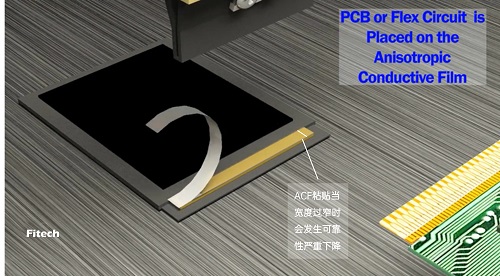
Fitech
Fitech's Solutions
Fitech provides services for the microelectronics and semiconductor ultra-fine soldering market. Fitech insists on independent research and development and has always been at the forefront of the market and technology. Depending on its unique ultra-fine powder manufacturing technology and professional scientific research team, Fitech can provide professional and reliable solutions to overcome the challenges of fine-pitch soldering.
 Realizing solder size miniaturization:
Realizing solder size miniaturization:
Fitech has one of the best research and development and production technology of ultra-fine solder in the entire solder field. Fitech led the launch of T7 (2-11um) series solder in 2014, T8 (2-8um) solder paste, and epoxy solder paste products in 2020. T8 solder products developed by Fitech have been commercialized in some internationally renowned companies. Meanwhile, Fitech’s T9 (1-5um), T10 (1-3um) solder paste, epoxy solder paste, and anisotropic conductive paste are in the final verification stage. The overall progress of ultra-fine solder development is far ahead of the market.

 Handling yield and reliability challenges:
Handling yield and reliability challenges:
To improve the yield and reliability of solders to meet the fine-pitch packaging market requirement, Fitech has done a lot of theoretical and practical work. First, Fitech's advanced powder manufacturing technology ensures that the ultra-fine alloy solder has a narrow particle size distribution and 100% sphericity. Second, Fitech has developed solder products with uniform dispersion. Third, it is achievable for the precise control of the solder oxygen content through process control, alloy particle size control, and powder particle coating treatment.
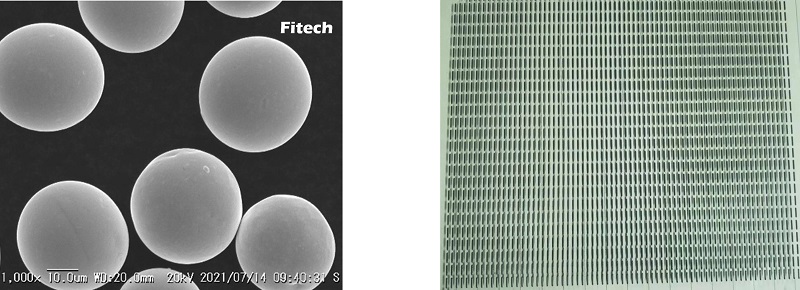

 Addressing connection strength challenge:
Addressing connection strength challenge:
Differ from ACF, Fitech’s solder paste, solder a, and anisotropic conductive paste products are all metallurgical connections. Experiments have shown that under the same process conditions, the strength of Fitech’s epoxy solder paste and anisotropic conductive paste to connect FPC is more than 30% higher than that of ACF. In addition, it is easy and quick to realize a smaller connection area than ACF.
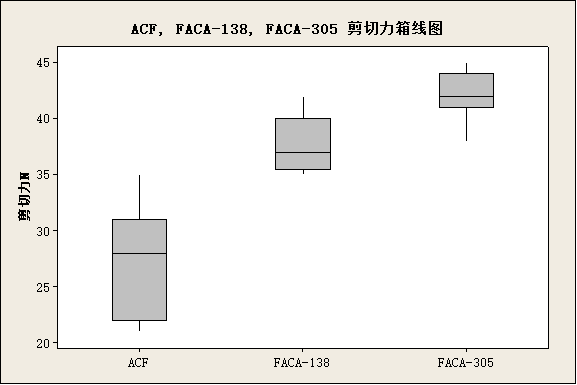
Fitech has always been committed to providing market-leading, reliable, and suitable technologies and products for customers in the field of microelectronics and semiconductor fine-pitch soldering.
 Scope of application:
Scope of application:
Ultra-fine solder paste, ultra-fine epoxy solder paste, and anisotropic conductive paste are suitable for fine-pitch chip soldering such as mini-LED, microLED, and SiP. The solder products are also applicable to the conductive connection of driver IC and substrate such as COG, FOG, FOB, FOF, COF, COB, etc.
-End-
Fitech is a comprehensive solder paste supplier integrating production, sales, research, and service of solder paste, epoxy solder paste, and ultra-fine alloy solder powder. The products include ultra-fine lead-free solder paste, high/low-temperature solder paste, die bonding solder paste, gold-tin solder paste, and others. Fitech has complete product lines to produce alloy solder powders and related applications. Fitech is the manufacturer of electronic-grade packaging materials that can produce T2-T10 ultra-fine alloy solder powder. In addition, Fitech is the leading unit for the formulation of solder powder standards conducted by the Ministry of Industry and Information Technology (MIIT). Enterprises are welcomed to consult and customize products.



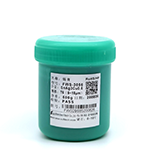



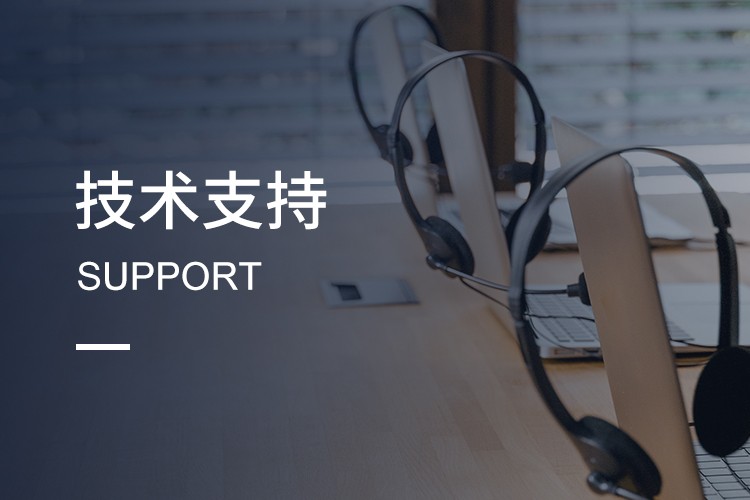



 Back to list
Back to list



